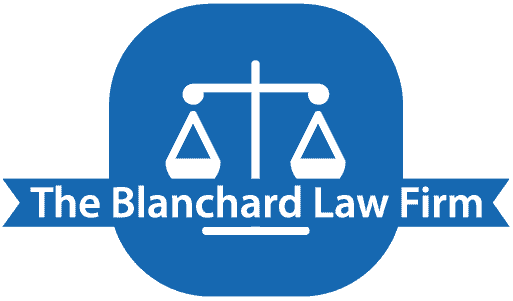
13 Oct What Happens if Someone Dies Without a Will?
The Consequences If Someone Dies Without a Will
The inevitability of death is an uncomfortable reality that many people tend to avoid addressing. While contemplating the end of one’s life may be unsettling, it is essential to plan for the inevitable to ensure the smooth transition of assets and the well-being of loved ones. One crucial aspect of this planning is the creation of a will, a legal document that outlines how an individual’s assets should be distributed after their demise. Unfortunately, not everyone takes the time to draft a will, and when someone dies without one, the legal process becomes more complex. In this article, we explore the intricate consequences of what happens if someone dies without a will also known as intestacy.
Intestacy: The Basics of what happens if someone dies without a will
Intestacy occurs when an individual passes away without a valid will in place. In such cases, the distribution of the deceased person’s assets is determined by the laws of intestate succession, which vary from jurisdiction to jurisdiction. These laws aim to provide a systematic way of distributing assets among surviving family members.
The Probate Process
One of the primary consequences of dying without a will is that the estate must go through the probate process. Probate is the legal process through which a deceased person’s estate is settled and distributed. Without a will to guide the process, the court appoints an administrator to manage the estate’s affairs. The court then follows the intestate succession laws to determine how the assets should be distributed.
Asset Distribution
Intestate succession laws typically prioritize the deceased person’s close relatives when distributing assets. Spouses, children, and other immediate family members may have a claim to the estate, but the specific rules vary. For instance, in some jurisdictions, the surviving spouse may inherit the entire estate if there are no children, while in others, the estate may be split between the spouse and children.

Challenges for Unmarried Partners and Stepchildren
One significant challenge arises for unmarried partners and stepchildren when someone dies without a will. Intestate succession laws often do not recognize these individuals as legal heirs, potentially leaving them without any claim to the deceased person’s estate. This can lead to disputes and legal battles, as those with a genuine connection to the deceased may find themselves excluded from the inheritance.
Guardianship for Minor Children
For parents of minor children, dying without a will can have particularly serious consequences. A will allows parents to designate a guardian for their children in the event of their death. Without this designation, the court must determine who will assume the role of guardian, often leading to a lengthy and emotionally challenging process.
Financial Issues And Possible Disputes
The financial consequences of dying without a will extend beyond the distribution of assets. The probate process itself can be time-consuming and costly. Legal fees, court costs, and other expenses associated with probate can significantly deplete the value of the estate, leaving less for the heirs.
Another crucial aspect of estate planning is minimizing tax consequences. So what happens if someone dies without a will? Their heirs may be left with tax consequences. Proper will planning can help reduce the impact of estate taxes on the assets left to heirs. This may involve strategies such as setting up trusts, making gifts, and taking advantage of applicable tax exemptions.
Lastly, a well-drafted will and estate plan can help prevent family disputes and legal battles. Clearly specifying how assets should be distributed and appointing executors and trustees can minimize the potential for disagreements among family members.

What Happens If Someone Dies Without A Will And Have Children?
In the unfortunate situation where both parents die without a will, the fate of their children becomes a critical concern. In the absence of a designated guardian named in a will, the court is left to determine who will assume responsibility for the minor children. This process can be emotionally distressing and may result in a guardian being appointed based on legal considerations rather than the parents’ preferences. The court typically prioritizes close relatives, such as grandparents or other immediate family members, but the final decision may not align with the parents’ wishes. To ensure the well-being of their children, it is essential for parents to include a clear designation of a guardian in their will, providing peace of mind and preventing potential disputes among family members during an already challenging time.
Steps To Preparing A Will Before You Die
Preparing a will is a crucial step in ensuring that your wishes are honored and your assets are distributed according to your preferences after you pass away. To create a will, follow these essential steps. First, take inventory of your assets, including property, bank accounts, investments, and personal belongings. Next, identify your beneficiaries—those individuals or organizations you want to inherit your assets. Choose an executor, someone you trust to carry out your wishes and manage the distribution of your estate. If you have minor children, designate a guardian to ensure their well-being.
Consult with an experienced estate planning attorney to navigate the legal intricacies and ensure your will complies with relevant laws. Be specific and clear in your instructions within the document, addressing potential scenarios and outlining how you want your estate handled. Regularly review and update your will to reflect any life changes, such as marriages, divorces, births, or significant asset acquisitions. Finally, store your will in a secure yet accessible location, and inform trusted individuals of its whereabouts. By taking these steps, you can proactively shape the legacy you leave behind and provide clarity and support for your loved ones during a challenging time.
Conclusion
If someone dies without a will, it can create considerable uncertainty and complexity for the deceased person’s family and loved ones. To ensure that your assets are distributed according to your wishes and to prevent potential legal disputes, it is essential to create a valid will. Planning for the distribution of your estate in advance can provide peace of mind for you and your loved ones during a challenging time. If you find yourself in the unfortunate situation of dealing with the estate of someone who has died without a will, it is advisable to consult with an experienced estate attorney to navigate the legal process and ensure a fair and efficient distribution of assets.

Related Questions
What is the role of an executor, and who fills this role in intestacy?
An executor is a person appointed in a will to carry out the deceased person’s wishes. In intestacy, the court appoints an administrator to perform similar duties, overseeing the distribution of assets and settling the estate.
How can the financial impact of dying without a will be minimized?
Proper estate planning can help minimize the financial impact of dying without a will. This includes strategies such as setting up trusts, making gifts, and taking advantage of applicable tax exemptions to preserve the value of the estate.
What is the difference between a will and estate planning?
A will is a legal document that outlines the distribution of assets after death, while estate planning encompasses a broader range of considerations. Estate planning may include wills, healthcare directives, funeral preferences, and strategies to minimize tax consequences.
Is professional guidance necessary for estate planning?
Yes, seeking professional guidance, such as that of an estate planning attorney, is advisable. Estate planning involves complex legal considerations, and professionals can provide personalized advice to ensure that documents are correctly drafted and compliant with applicable laws.
How can charitable giving be incorporated into estate planning?
Individuals can include charitable bequests in a will or establish a charitable trust as part of their estate plan. This allows them to leave a legacy by supporting charitable causes while potentially benefiting from tax advantages.

Sorry, the comment form is closed at this time.